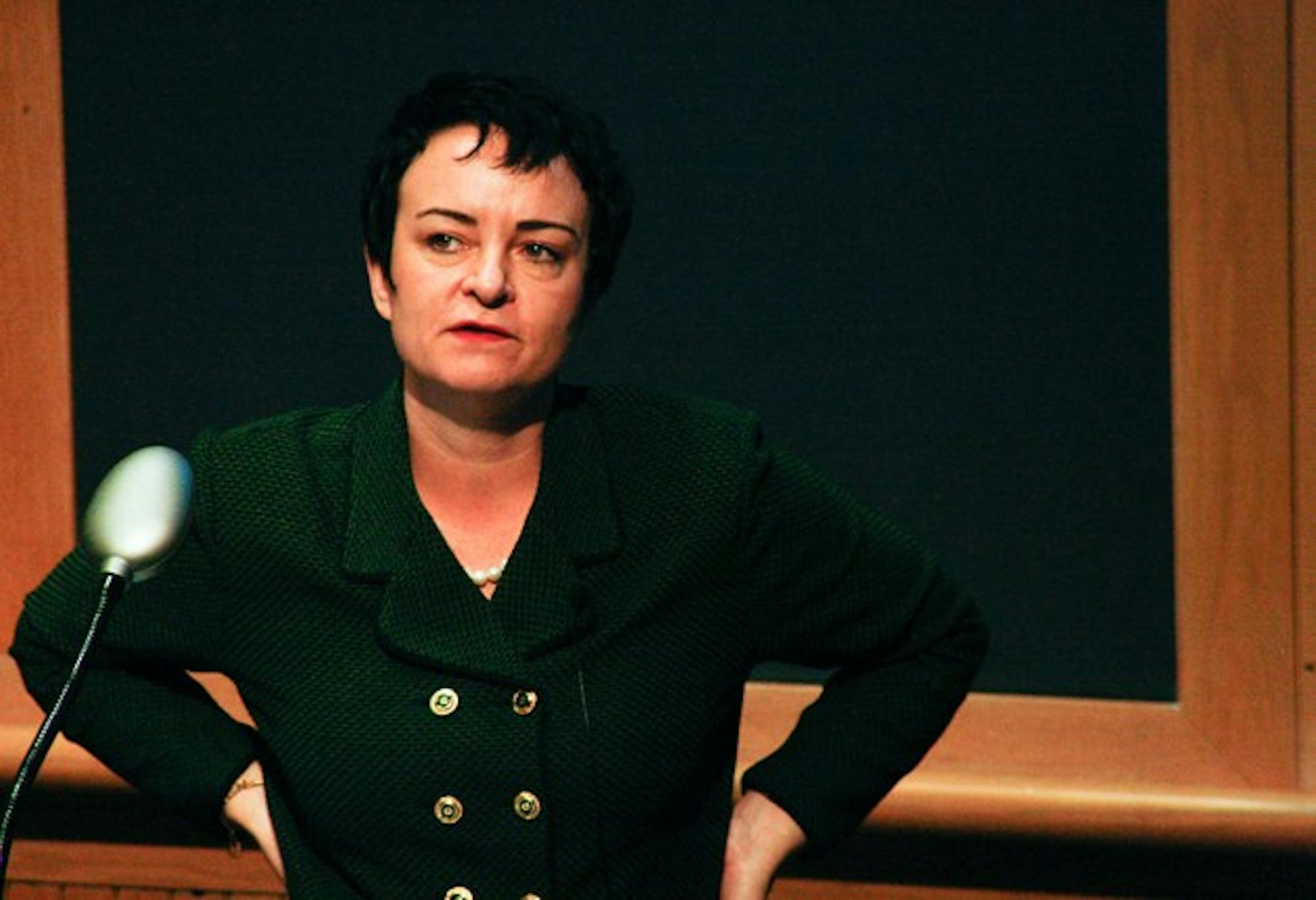Cultural anthropologist Montgomery McFate emphasized the importance of sociocultural knowledge in forming national security strategy, explaining a new counter-insurgency theory that relies on experts in social-science disciplines, in a lecture at the Rockefeller Center on Thursday evening.
McFate is one of the architects behind the new Human Terrain System, a $130 million U.S. Army program founded in October 2007 that embeds social-science experts with combat troops in Iraq and Afghanistan in an effort to help military commanders understand how societies will react to operational strategies. These Human Terrain Teams -- which include professional anthropologists and military personnel -- assist soldiers and brigade commanders in understanding local cultures and intelligence information.
According to McFate, the impetus for HTS grew out of the Department of Defense's disillusionment with the way the war in Iraq was being fought.
The program has come under fire, however, from anthropologists who accuse it of violating ethical standards. The American Association of Anthropologists has accused the program of blurring the line between soldiers and researchers and of possibly aiding military targeting, a violation of the AAA Code of Ethics.
McFate and Marcus Griffin, who spent a year working for the HTS in Iraq, disputed this criticism, saying that it is based on ideological opposition to the Iraq war and misconceptions about the role of HTS.
"The people making these claims are simply blind to the possibility that it is possible to interact with [local people] without harming them," Griffin said.
HTS has also been criticized by some in the defense community who question its effectiveness. In an April 2008 speech before the Association of American Universities, Secretary of Defense Robert Gates described the program as "still in its infancy and experiencing growing pains."
Gates has offered strong praise for the program, though.
"The net effect of these efforts is often less violence across the board and fewer hardships and civilian deaths," Gates said in an official statement.
McFate said the program should be credited with saving lives, as it has helped soldiers gain the respect and trust of local citizens and allowed the military to achieve strategic objectives without the use of force.
McFate illustrated the importance of HTS with a specific incident from the war in Iraq: When an American platoon in Iraq captured a suspected Al Qaeda sympathizer, the local Iraqis became furious. But after an HTT officer identified the prisoner as harmless and the commanding captain was ready to release him, the HTT officer explained that the local Iraqis would consider the release insulting unless it was done in accordance with their culture.
McFate said that after the captain released the prisoner in what the townspeople considered a respectful manner, the local sheikh was so impressed that he volunteered to drive out Al Qaeda himself, and also informed the American military of the location of several weapon caches and improvised explosives.
Griffin joined McFate at a Rockefeller Center luncheon earlier Thursday. He said that his cultural training allowed him to help soldiers understand intelligence and allocate resources more effectively.
"A brigade is nothing more than an information-consuming machine," Griffin said, "Having a social scientist on their staff helps them make sense of all the information coming at them."
The original version of this article, which ran on Friday, Sept. 26, incorrectly identified Hugh Gusterson as an MIT professor and falsely attributed to him the quotation, "The Department of Defense uses social science the way a drunk uses a lamppost; for support rather than illumination." He is a professor at George Mason University, and David Price made the above statement.




